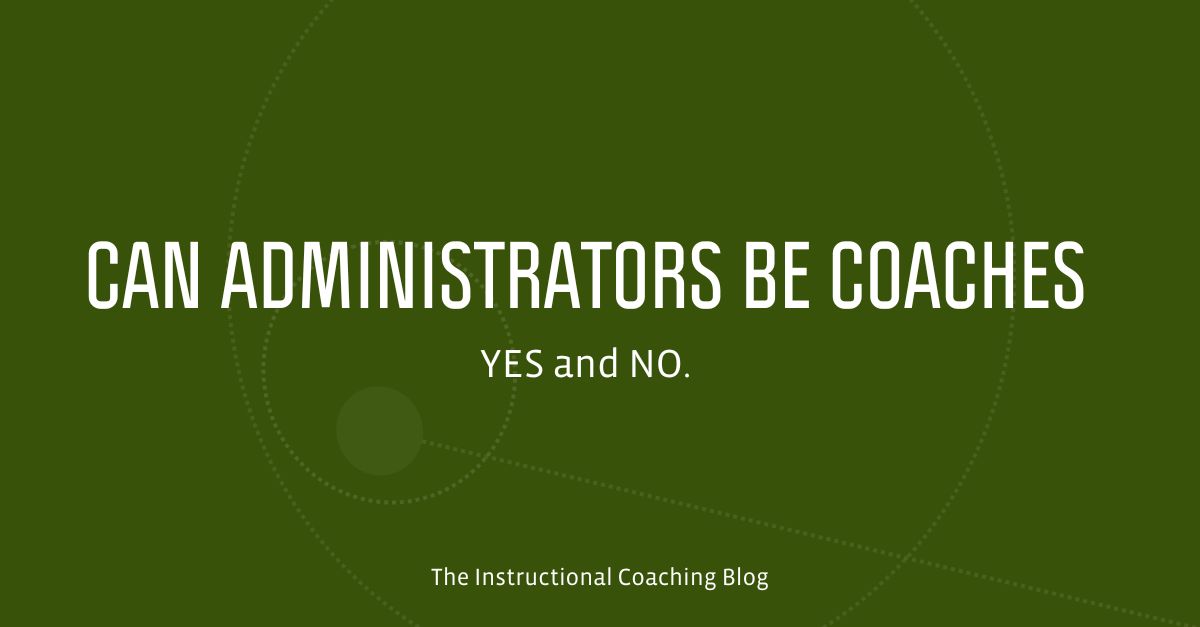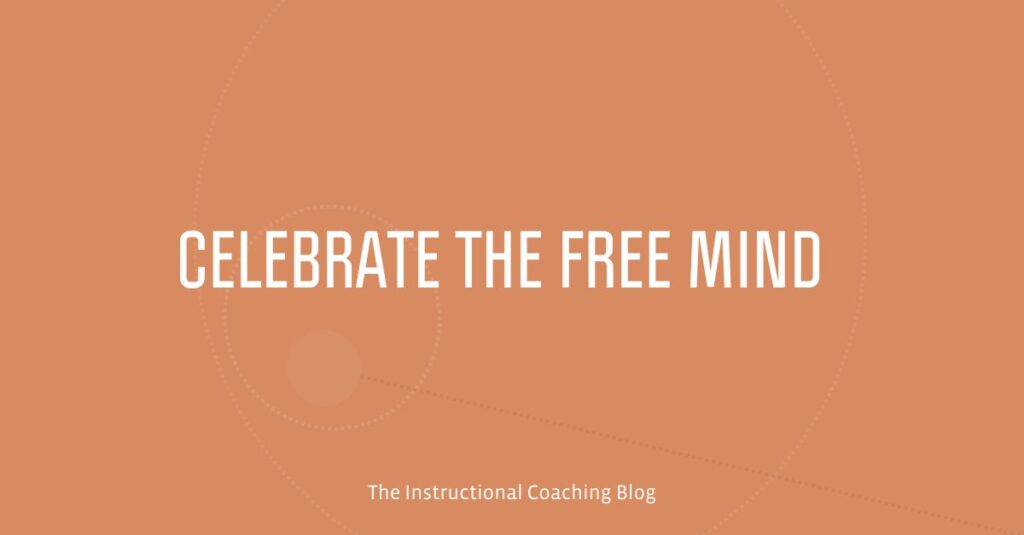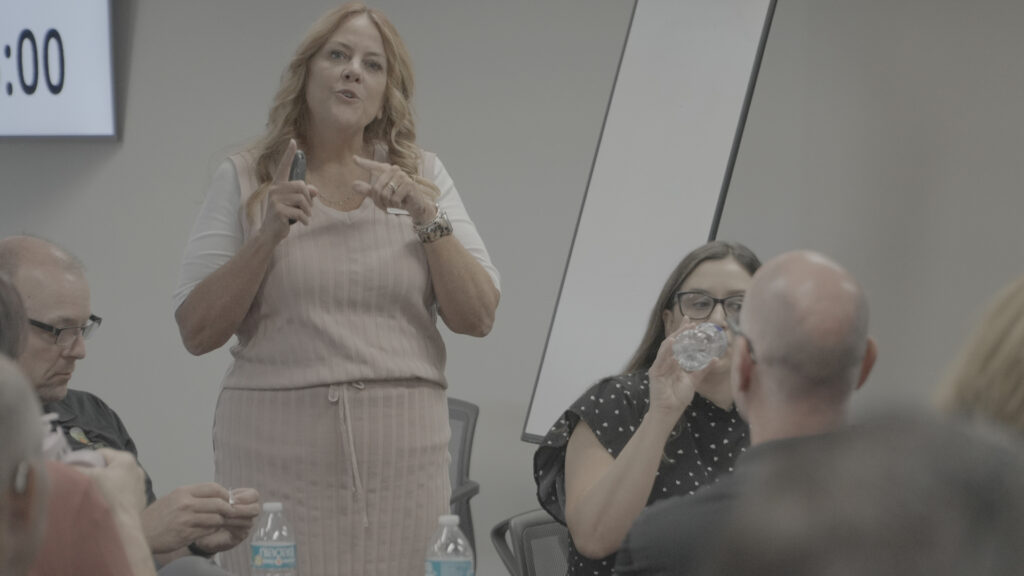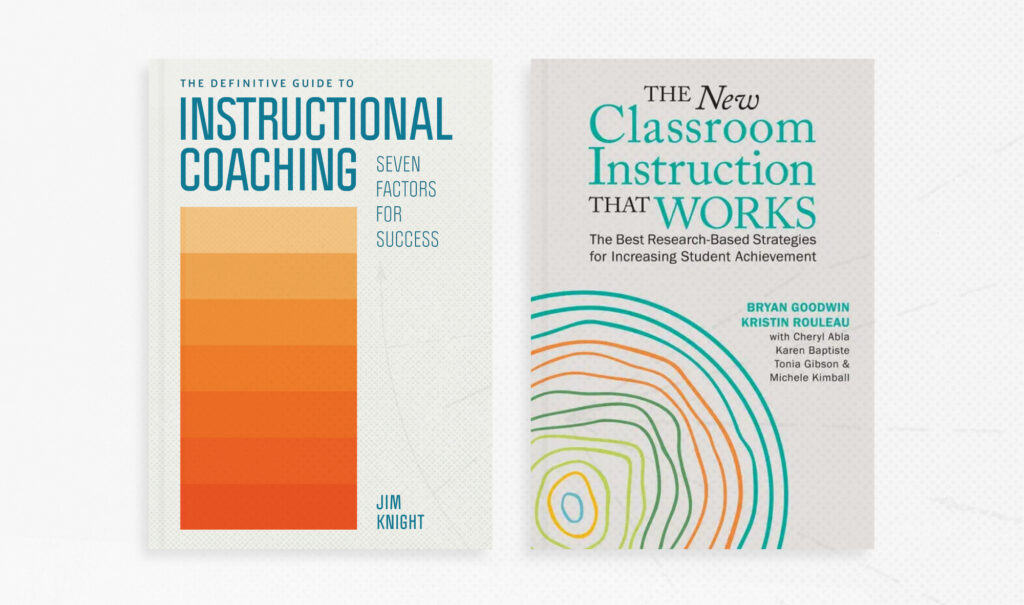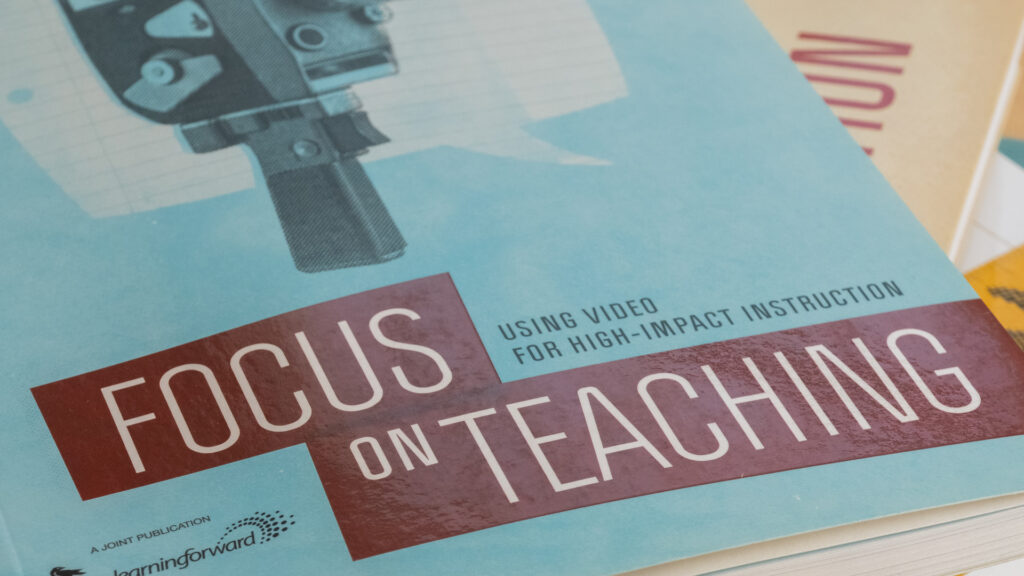Like most educators, principals and administrators are very busy professionals. With all of the various tasks that fall under their responsibility, finding the time and focus to go through a complete coaching cycle can be next to impossible. But something administrators can do is to take a coaching approach to their interactions with teachers.
The average instructional coaching cycle can take up to a total of 5-6 hours, including video-recording teachers’ lessons, helping teachers set goals, describing strategies, modeling in the classroom, making adaptations with teachers, as well as meeting frequently with teachers throughout the cycle. Most administrators will struggle to find the time go through a full Impact Cycle with one teacher, let alone multiple teachers. However, adopting a way of being that encourages dialogue and improvement, practicing key coaching skills, and learning a coaching process can make a tremendous impact by fostering a coaching culture within the school.
The Instructional Coaching Group and Growth Coaching International (GCI) have partnered to create a research-based workshop specifically designed to help school leaders adopt a coaching approach: Introduction to Leadership Coaching.
In The Leader’s Guide to Coaching in Schools (2018), GCI’s John Campbell and Christian van Nieuwerburgh explain three elements of effective coaching, and understanding these elements is the key to embracing a coaching approach.

A Coaching Way of Being
Developing a Coaching Way of Being involves an awareness of how you present yourself to others. This is what Jim Knight and ICG refer to as a Partnership Approach. As a principal, positioning yourself as a partner establishes trust and creates a back-and-forth dialogical interaction where you are not the most important decision maker in the conversation. Instead of dictating what a teacher did right and wrong and what they need to do, the conversation becomes a discussion between professionals that honors the discretion of the teacher.
The Partnership Principles described in Jim Knight’s Unmistakable Impact (2011) provide a reference point to encourage a Partnership Approach in all coaching conversations. In a series of blog posts and videos, Knight provides an overview of each of the Partnership Principles:
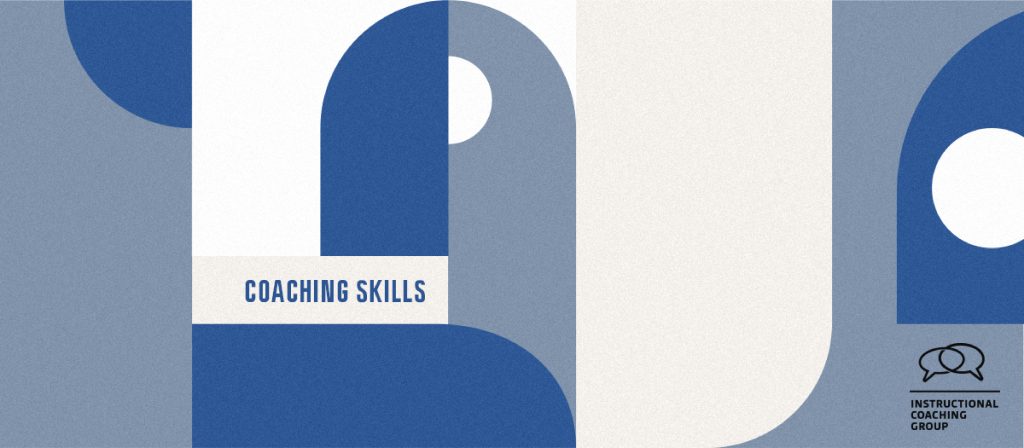
Coaching Skills
Coaching skills are communication tools that coaches use in a “managed conversation” (van Nieuwerburgh) to “help people reach their potential” (Whitmore). The Leader’s Guide to Coaching in Schools offers a list of essential coaching skills, and two of the most important are active listening and asking the right kind of questions.
Active listening can help you genuinely hear what the other person has to say. By communicating your understanding through thoughtful, nonverbal actions rather than interrupting to complete someone’s sentence or offer a word they may be trying to think of, you can validate and solidify their perspective. It also allows the opportunity to notice more about them as they speak and become more aware of your own internal process as you listen.
After you’ve listened to what they have to say, asking questions to clarify what you’ve heard or paraphrasing the other person can help them work through their thoughts. As Christian van Nieuwerburgh says, “Coaching is often creating a quiet space for the other person to think.”
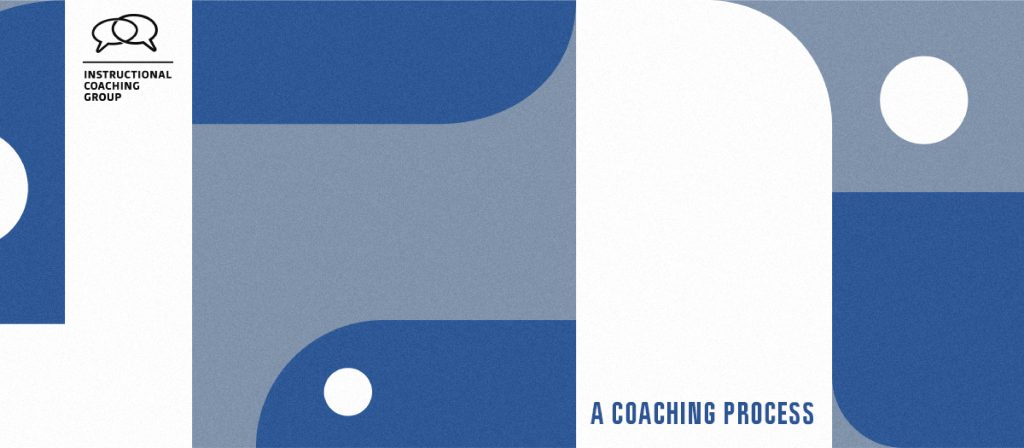
A Coaching Process
Leaders seeking to take a coaching approach should be familiar with a coaching process to help teachers through meaningful change and improvement. The GROWTH coaching model used by GCI serves as a framework to be applied in any coaching interaction. The use of this model provides an adaptable structure to rely on as coachees go through the necessary steps to identify and reach their goals.
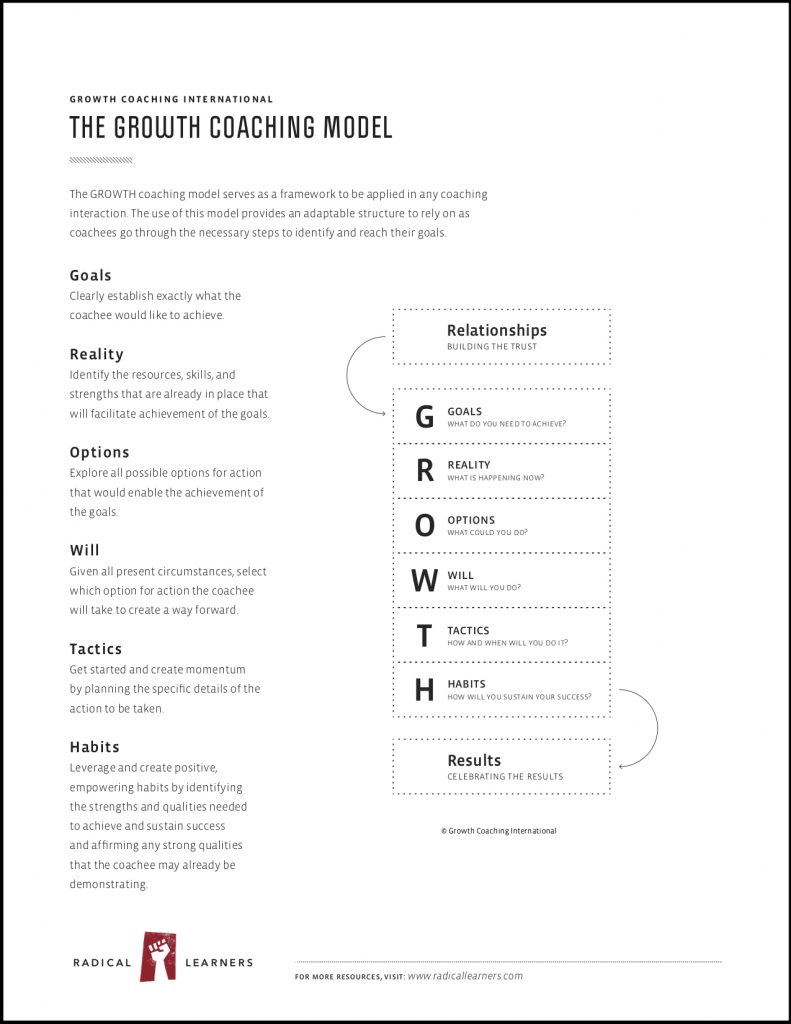
While principals and administrators likely cannot go through many full Impact Cycles with teachers, they can approach teachers as professionals and encourage a positive, coaching culture. Through these kinds of thoughtful interactions, they can encourage a higher level of ownership by helping teachers determine their own plans to reach their goals for improvement.
ICG and CGI’s workshop, Introduction to Leadership Coaching, provides intensive exploration of adopting a coaching approach. Click here to learn more and register.
